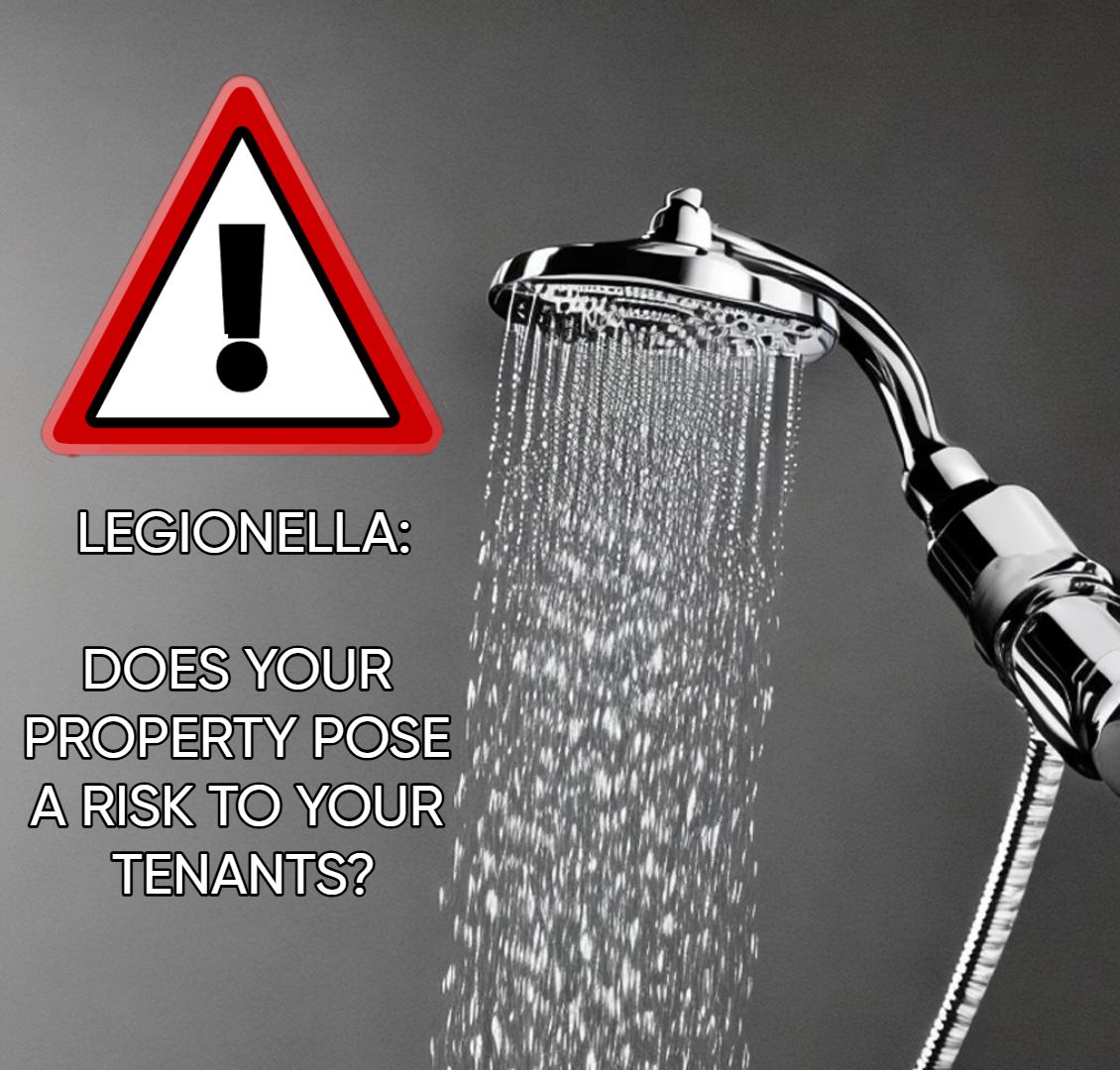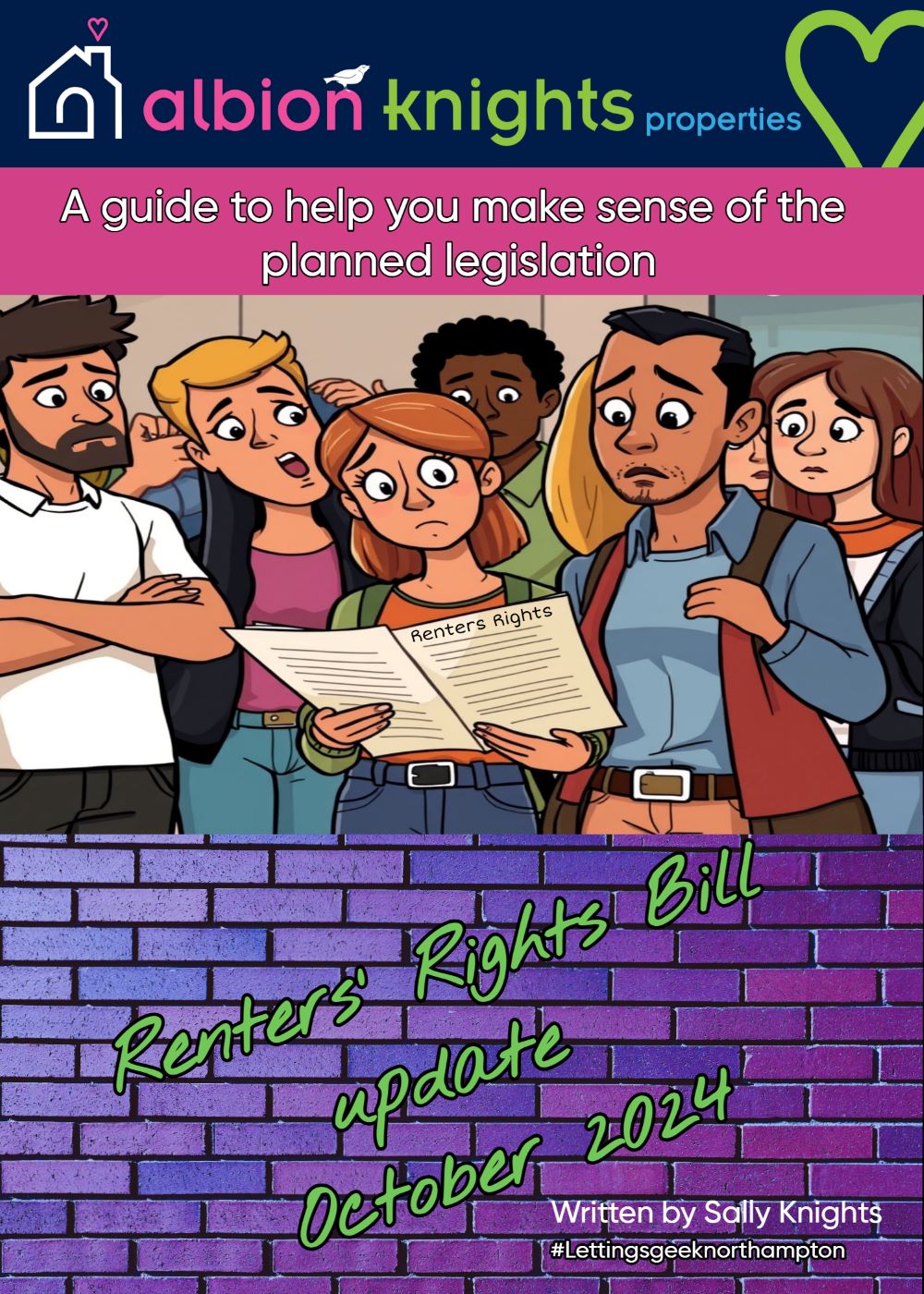Part of our service is to guide you throughout your journey as a landlord. We are here to help, and we extend a very warm welcome to you.
We hope you enjoy the content, and feel free to get in touch if you have any questions.
What type of property works best for letting?
Any type of property that is in good condition will rent! There isn’t just one type of property that landlords are buying to let or one type of property that Tenants want to live in. Tenants all come with different desires, needs wants & must haves and they come from all walks of life.
The housing needs of a tenant vary, and these are often due to the life stage or situation they find themselves in. For example, if a tenant has children, they may want a property with more bedroom space and be close to a specific school or nursery or close by to a relative who helps with childcare. A single person may be content with a studio apartment or room in a shared house, but we also have single tenants who crave more space and rent three-bedroom homes.
Tenants may do a daily commute and need to be near to a motorway or train station, they may be moving to be close to a relative who needs care, they may be moving with their job and need to live near to their place of work; a typical example of this are NHS workers, or they may need to live somewhere that has ultra-fast broadband if they are working from home.
We have observed that flats have a higher turnover of tenant as opposed to houses with gardens and we have noticed a pattern of tenants moving out of flats in the summer (when the desire to have outside space is more paramount) than in the winter months.
The area in which your buy to let is located will have a bearing on the price you pay. For example, a property in (let’s say) the NN3 postcode is likely to cost less than a property in the NN4 postcode. The rental value isn’t necessarily going to be significantly higher in the more expensive to buy area. As a real-life example of this:
Mr A Landlord purchased a three-bedroom property in an NN3 post code at £275,000 and has just agreed a let with his tenants at £1300 per calendar month.
Mrs I Rent purchased a similar sized property in similar condition in an NN4 postcode, and she has aid £325,000. She has just agreed a let with her *tenants at £1400 per calendar month.
Mr A Landlord seems to have the better investment, as he has spent £50,000 less than Mrs Rent and he is only receiving £100 less in rent per month. That £50,000 saving on his savvy purchase could enable Mr Landlord to buy another buy to let property!
It pays to shop around; we strongly recommend you investigate away from the areas that you may rule out if you were looking to buy a property to live in yourself. We have a lot of conversations with landlords about where is the “best place” to buy. After we have given them the examples of Mr landlord and Mrs Let, they realise that there is way more choice than the area they had originally cast their net over and they can spend less to achieve a decent return.
TOP TIPS
What to look out for when buying to let, particularly if you don’t have a huge refurbishment budget
- Make sure the property has a decent heating and hot water system. If need be, get it checked out by a Gas safe engineer (if its gas) before you commit to a purchase.
- Make sure the electrics are safe and up to current standards, consider getting a qualified electrician to conduct a check before you commit to purchase.
- Serious sellers will have no problem with buyers getting these checks completed prior to exchange of contracts
- Ensure that the property has double glazing
- Make sure that where possible the EPC rating is C or above. (Anything lower than a F cannot be rented out unless it is exempt or certain criteria is met)
- Make sure you have a full structural survey on an old property so that you are aware of any defects the current owners may not be aware of
- Find out what you can about the neighbourhood. You can join local groups on Facebook to gauge an idea of what an area is like. Speak to the neighbours if you get a chance.
- Buy a property that is as future-proofed as possible. By this we mean a modern and functional kitchen and bathroom and a low maintenance garden, modern flooring and décor.
Ask an experienced letting Agent what rent the property is likely to achieve per month.
Is the property worth your investment? Anything that gives you less than a 5% yield may not be worth investing into. Use this calculation to assist you: Rent per month x 12 = Annual income.
Annual income ÷ purchase price x 100 = Annual yield
Or use this helpful link to calculate the yield.
Your responsibilities as a landlord
There are many pieces and layers of legislation you must adhere to ranging from the Housing Act of 1988 to the Homes (Fitness for Human Habitation) Act 2018 (at the last count, there are a whopping 170 pieces of legislation!) If we run through ALL of them you would run for the hills, which is why it’s important that you use a knowledgeable and experienced Agent who know their lettings legislation!
In short, you have a responsibility to provide a safe home for your tenants and you have a statutory obligation to repair the property, but as we’ve mentioned above, there is so much more to it than that. The basics that you need to be aware of and know how to do to get started are listed below:
- Ensure any advert you produce for the property is accurate and factual
- Complete full checks on your ingoing tenants to include credit checks, previous landlord checks and obtain employment references
- Ensure you have permission from your mortgage lender to rent out the property
- Ensure you tell the freeholder (if applicable) that you intend to let and get the relevant permission if applicable
- Make sure you have the appropriate insurance for letting out your property
- Gas safety check (annually, if the property has a gas supply)
- Electrical installation condition report (at least every 5 years)
- Carbon Monoxide detectors (tested before tenants move in)
- Smoke alarms (tested before tenants move in)
- Legionnaires risk assessment (every two years)
- Energy performance certificate with a rating of E or above
- Ensure all furniture meets current safety requirements
- Ensure that the deposit you collect is not more than the equivalent of 5 weeks rent
- If you charge a holding fee, ensure you know the legalities surrounding the tenant’s fees ban
- Registration of tenant’s damage deposit (and service of prescribed information)
- Check the tenants have the right to rent in the UK and obtain proof (big fines if you do not comply)
- Provide a comprehensive check in inventory to ensure there are no flash points or disagreements at the end of the tenancy
- Check everything works and there no health and safety hazards before your tenants move in.
- Make sure that appliance manuals are available for the tenants either printed or provided by email.
- Make sure you have your tenants contact details! Make sure you give your tenants your bank details so they can pay the rent
- Issue a detailed and compliant tenancy agreement, and make sure you use the right type of tenancy agreement.
- Ensure you give your tenants copies of all legally required prescribed information. Inform all utilities that new tenants have moved in and provide readings for water, gas & electricity.
Furnished or unfurnished accommodation
We very rarely let out or have much demand for furnished properties. 99% of enquires we receive from tenants are for unfurnished properties. You won’t always get a higher rent if you fully kit-out your property, in fact fully furnishing your property can lead to more hassle and cost further down the line as items become worn and, in some cases, damaged.
Your insurance costs are likely to be higher too if you fully furnish your property.
Most landlords supply a cooker & hob for their tenants (most are built into the kitchen) and this will be the landlords responsibility to repair and maintain or replace throughout the tenancy. You do not have to supply a cooker or a hob, nor do you have to supply and other “white goods” such as a fridge/freezer, washing machine etc but it can be more appealing to the tenant if the property is kitted out with these high price tag items. Just remember that you are responsible for these items if you chose to provide them.
In short, unfurnished is the best option and the most in demand (unless you are providing short term serviced accommodation).
Property viewings & kerb appeal
Make sure you know who you are showing around your property. There is little point showing a potential tenant/s around your property if they can’t move in for 6 months, they can’t afford to pay the rent, or they may turn up as a family of 6 to move into a one-bedroom flat!
Here are a few questions you could ask before you agree to a viewing
- Name/s, current address and contact details
How many adults are moving in
How many children are moving in and their ages
Do they have pets
What means do they have to pay the rent? ( salary, benefits, pension, savings etc)
Do they have a UK bank account
Are they aware of any adverse credit such as CCJ’s
Have they ever been evicted from a rented property
Ask why they are moving
When do they want to move in
Do they have the right to rent in the UK
Ask if they can they get somebody to stand as guarantor if required
Make sure that your property looks good for viewings as first impressions count ....kerb appeal and beyond
Make sure that any gardens are tidy and are kept tidy while the property is vacant and awaiting tenants to move in.
Make sure the house is clean and smells clean, you don’t need to bake bread or make a pot of coffee, just buy some plug in air scents
Decorate away any previous leak staining, obviously once the leak has been fixed
Make sure garages, sheds, cellars and cupboards are empty, assuming nobody is living at the property
Ensure floor coverings are clean and in good order
If need be, give the property a lick of paint all over, a general freshen up is recommended at the change of tenants
Remove all personal bits & bobs from the property or anything left behind by the previous occupier, unless they are in good/safe order and will benefit the property
Tax! (sorry, but you need to know)
Section 24 of the Finance Act 2015 is one of the biggest challenges of recent years for landlords as it removes a landlord’s right to deduct most of their finance costs, including mortgage interest and arrangement fees, from their rental income before calculating what tax they need to pay. This means landlords must pay tax on the gross income they earn from a rental property, and this can lead to a higher tax bracket being entered. This change has made some buy to lets less profitable and as a result landlords have been forced to increase rents as they are hit with higher tax bills, ultimately hitting the tenants in the pocket.
Section 24 was brought about by the 2015 Finance Act during David Cameron's PM-ship. It was part of a wider set of measures intended to keep home ownership levels high and slow the growth of the private rental sector (PRS). It was hoped that the changes would reduce demand from buy-to-let landlords and help first time buyers get on the property ladder! In fact, from what we can see, its done nothing but help push rents up to the all time high that we are seeing now.
If you are a new landlord, and we are guessing you are if you are reading this guide, the silver lining is that you can’t miss what you never had. A potential way of avoiding Section 24 is to transfer your property or portfolio if you’re buying a few to a limited company who presently are exempt from Section and 100% of mortgage interest can be offset against tax as a business expense. In addition, the corporation tax rate in the UK is currently 19%. This is a lot lower than the 40% higher band tax rate. However, this is not the right option for everyone.
You may need to pay stamp duty and capital gains tax if you transfer a property to a company. This is unless you can claim incorporation and stamp duty reliefs if you can prove that you spend around 20 hours per week managing a portfolio of properties. If you just have one or a very small portfolio of properties, it will be hard to convince HMRC that this is the case.
Another factor to consider is that taking money out of the company leaves you liable to a double tax charge, once via corporation tax and then again when you come to extract the profits personally.
Getting a company buy to let is notoriously more difficult than borrowing in your personal name, and arrangement fees and interest rates tend to be higher for limited company mortgages.
Its best to speak to an accountant about this as we have only touched on the basics
What costs can you offset?
Here is a short list of some costs you can offset, check the official information available on HMRC’s website
Repairs & maintenance to the property
Safety checks
Letting agent fees
Accountancy fees
Buildings and contents insurance
Council tax and utilities (when you’ve paid when the property is vacant)
Travelling expenses to and from your rented property
Replacing items of furniture and white goods will be allowed as an expense less any proceeds on the disposal of the item being replaced. The cost of assets which are not replacements is not allowed as an expense.
Administration (phone calls, stationary, postage etc)
Cleaning and gardening
Ground rent
Painting & decorating
The costs incurred when you buy a property are considered integral to the purchase price and cannot be offset against future rental income. This includes expenses such as stamp duty, legal fees, surveys, and auctioneers’ cots. These expenses should be factored into future capital gains liabilities, particularly if you decide to sell the property.
Do you need a letting agent?
A good letting agent should take all the stress and worry out of being a landlord and not add to your stress! Landlords should consider taking advantage of their expertise & knowledge to pave the way for a smooth hassle-free letting experience. If you are a new landlord, we recommend using an Agent for at least the first year, even then, the private rental sector is a minefield and if you get it wrong, you can land up in some serious hot water.
Check out the Agents Google reviews from landlords. You will notice that disgruntled tenants can leave unsavoury reviews for Agents, which are mostly connected to deductions from the damage deposit that generally are authorised by the landlord, so we can confidently say that you can take most of these types of tenant reviews with a pinch of salt. The Agent is always the bad cop in the case of deposit disputes!
Most agencies will offer a fully managed service where everything is taken care of to ensure you’re your tenancy runs smoothly. A fully managed service generally consists of paying the Agent a fixed fee to advertise the property and to show potential tenants around on a viewing.
They will complete the necessary pre move in checks on the tenants to ensure suitability to rent the property and issue a legally binding tenancy agreement, issue an inventory/schedule of condition, organise all the required pre tenancy certificates if they are needed, inform the utility companies of the new tenancy, register the damage deposit and ensure all relevant prescribed information is served on the tenant/s.
The fees can vary from £250 up to £600! It’s a lot of work and if done properly, it can save you a fortune in the long run! Agents do charge additional fees for inventories and renewal of tenancies and for service of some notices.
A monthly fee is then paid to the agent, these can range from 8% – 15% of the monthly rental amount
Most modern agencies invest heavily into staff training to ensure that all staff are knowledgeable and are advising clients appropriately. They mostly use very high-tech systems to ensure that no aspect of the management of your property is ever overlooked.
A monthly management charge normally would include:
Collecting rent from the tenants
Paying rent to you in a timely manner
Chasing late rent and arrears
Dealing with requested changes to the tenancy agreement
Completing regular inspection visits
Checking smoke alarms and carbon monoxide alarms are working on inspection visits
Organising and coordinating maintenance
Dealing with queries and questions from tenants
Dealing with any disputes or complaints that may arise
Provide you with a detailed remittance statement monthly
Sending you copies of works invoices
Ensure that key dates are adhered to (safety certificate expiry and tenancy renewals etc)
Advise you of changing market rents and proposing suitable rent increases
Implementing rent increases in the correct manner.
Keeping a check that all maintenance contractors have the necessary skills and insurance to work on your property.
Deal with your preferred contractors on your behalf
Dealing with damage deposit return, admin and disputes
We hope that this guide has given you some insight into what being a landlord entails. We are of course available for a chat on 01604 874400 or you cand send us an email to: This email address is being protected from spambots. You need JavaScript enabled to view it.
GUIDES FOR YOU TO READ/DOWNLOAD





